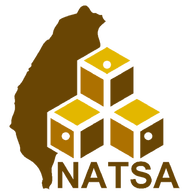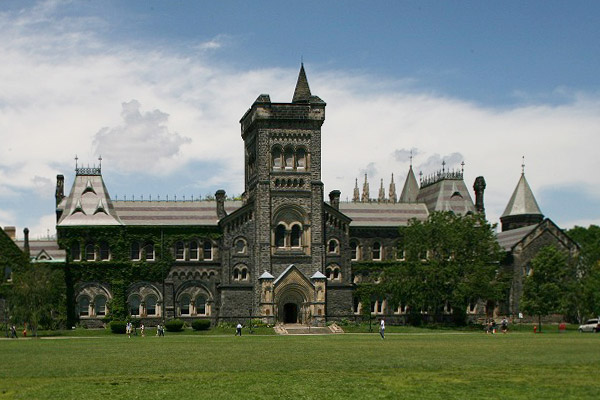The American Political Science Association (APSA) will hold its annual conference in Philadelphia, September 1-4, 2016. This is the primary academic gathering of political scientists in the United States every year. The APSA Conference Group on Taiwan Studies (CGOTS) has issued a special call for papers, posted below. Pro-tip: applying to CGOTS will significantly increase your chances of getting a paper accepted at APSA.
In addition, the North American Taiwan Studies Association (NATSA) will hold its annual conference on June 10-11, 2016, on the campus of the University of Toronto. NATSA is the principal annual Taiwan studies conference in North America. The call for papers is below; additional details can be found at the conference website, here.
Great Transformations: Political Science and the Big Questions of Our Time

Conference Group on Taiwan Studies (CGOTS)
CALL FOR PAPERS
Deadline: January 8, 2016
The 2016 American Political Science Association (APSA) Annual Meeting will be held from September 1-4 in Philadelphia, PA. The conference theme is “Great Transformations: Political Science and the Big Questions of Our Time.”
CGOTS invites paper and panel proposals on Taiwan’s domestic politics, international, and cross-strait relations that are consistent with the conference theme of “Great Transformations: Political Science and the Big Questions of Our Time.”
Transformative change is vital to understand yet complex to study. Transformations can occur through sudden, dramatic upheavals—such as revolutions, regime collapse, or terrorist attacks—that are watersheds between old and new eras. Fundamental change may also be the cumulative result of gradual-moving, incremental developments, as in global warming, rising inequalities, or changing social values. However and wherever these transformations occur, they are imbued with politics, as political forces structure the nature, pace, and interpretation of change. Transformations may, in turn, profoundly alter the political landscape. The year 2016 presents a major transformative moment for Taiwan which may have long-term implications for Taiwan’s future political, socioeconomic, ideational, and cross-strait relations outlooks.
In the 2016 Annual Meeting, we encourage participants to reflect upon the big transformations of our time. Some major challenges in contemporary Taiwan’s politics, foreign and cross-strait relations stem from large-scale processes that are reconstituting its socio-political identities, external relationships, civil society, economics, and political institutions. How have political forces influenced such changes in Taiwan’s social, economic, political, technological, and environmental spheres? Can we learn from past examples of ideational, material, or institutional change in thinking about contemporary concerns? What methods and approaches can best facilitate the study of large and complex processes? How should we analyze and evaluate various transformations?
Scholars in the field of international relations have been grappling with a variety of structural changes, including shifts in the global balance of power, the effects of new technologies on war-making and security, and evolutions in the international economic order. What implications do these changes have for explaining Taiwan’s external relations and policies as well as Sino-American cooperation and competition?
Comparative politics also has shifted its attention to transformative developments, such as regime changes, radicalized political identities, and challenges to the state. What mix of structure and agency generates these types of political shifts in Taiwan? With respect to methodology and epistemology, in what ways can our research designs help us grasp dynamic transformations in Taiwan and/or China?
We encourage papers that tackle these and related questions.
Please send proposals to APSA: http://community.apsanet.org/annualmeeting/call/relatedgroups
If you have any questions or concerns, please contact Professor Dean P. Chen ([email protected]), CGOTS Coordinator. The deadline for proposals is January 8, 2016. Decisions on the proposals will be communicated to you in March 2016. Travel support for CGOTS panelists is subject to the availability of external funding.
Taiwan Studies in Trans* Perspectives:
Transdisciplinary, Transnational, and Transcultural

University of Toronto, Canada
Deadline of abstract submission: January, 08, 2016
Notification of acceptance: February, 26, 2016
Deadline of Registration: May, 13, 2016
Call For Paper Website: http://www.na-tsa.org/2016cfp
We are pleased to announce that the 22nd North American Taiwan Studies Association (NATSA) Annual Conference will be held from June 10-11, 2016. This year's conference, titled "Taiwan Studies in Trans* Perspectives: Transdisciplinary, Transnational, and Transcultural," welcomes scholars interested in studying Taiwan from all disciplines and explores how Taiwan—as a case, a theory, or even a method—can further transform current knowledge constructs toward an inclusive global vision.
Trans*, used in transgender studies as an umbrella term to include individuals seeking gender identities within and beyond the traditional male-female dichotomy, sheds light on an insightful and radical approach to Taiwan Studies. The asterisk in trans*, originating from computer science, serves as a wildcard character that stands for any words starting with trans, and symbolizes the openness and inclusiveness of the transdisciplinary community of Taiwan Studies. In line with this inclusive spirit, Trans* opens up new approaches to encourage scholars of Taiwan Studies to boldly transgress disciplinary boundaries and cull perspectives from various intellectual communities.
Of all the relevant trans* themes in this conference, participants are encouraged, but not limited, to set transdisciplinarity, transnationality, and transculturalism as a point of reference. Transdiciplinarity is not only a series of cross-disciplinary activities but also a transformation among contexts and the transcendence of multiple disciplines to create innovative context-based theories. Taiwan Studies from a transdisciplinary perspective offers a lens for researchers to examine, discuss, and understand issues in multiple contexts. Transnationality both emphasizes and questions the existence of universal values or a one-size-fits-all nation-state theory. It not only digs out the diversity derived from the uniqueness of local contexts, but also tries to clarify the imbalanced power structure among the units. Transculturalism, a theoretical concept that seeks to break the boundaries between different communal, cultural, societal, and national sectors. Additionally, a new framework is established in which participants are understood not as members exclusively belonging to particular groups but as constantly crossing categorical boundaries in a search for self-identity.
With respect to the events of 2015/16 in Taiwan, the importance and necessity of using the trans* lens to study Taiwan cannot be over emphasized: i.e. the controversies over the content of a history curriculum, the Ba-xian water park tragedy, the 70th anniversary of the Second Sino-Japanese War, economic slowdown and integration, Muslim immigrant's Eid al-Fitr in Taipei Railway Station, debates on marriage equality and multiple families, nuclear power, damage from consecutive typhoons, the 2014 Taipei Metro attack, and the upcoming 2016 presidential election, to name a few.
As the very first NATSA annual conference to be held in Canada, we also welcome studies juxtaposing the similarities and differences between Taiwan and Canada on, but not limited to, First Nations/Indigenous issues, independence movements and nationalism, language and education, colonialism and post-colonialism, comparative elections, immigration, women and gender policy, LGBTQ+ protective legislation, and flirtations with neo-imperialism. Distanced from the world of uni- or bipolarity, the 2016 NATSA conference aims to record and catalyze the continuing and discontinuing trans* of Taiwan and Taiwan studies.
Contact Information
Austin Wang, NATSA 2016 Program Director, [email protected]
Eric Cheng, NATSA Secretary, [email protected]


 RSS Feed
RSS Feed
